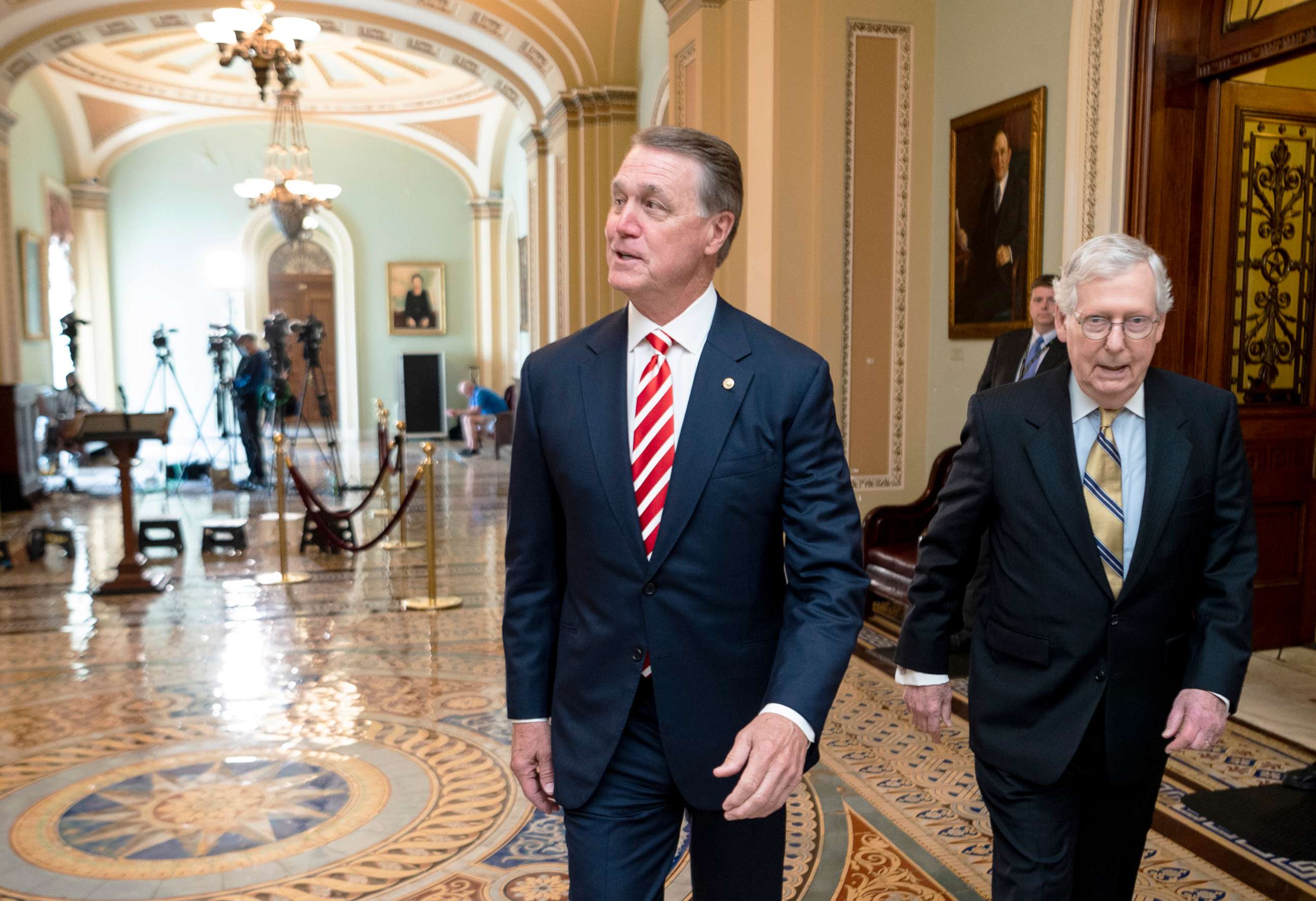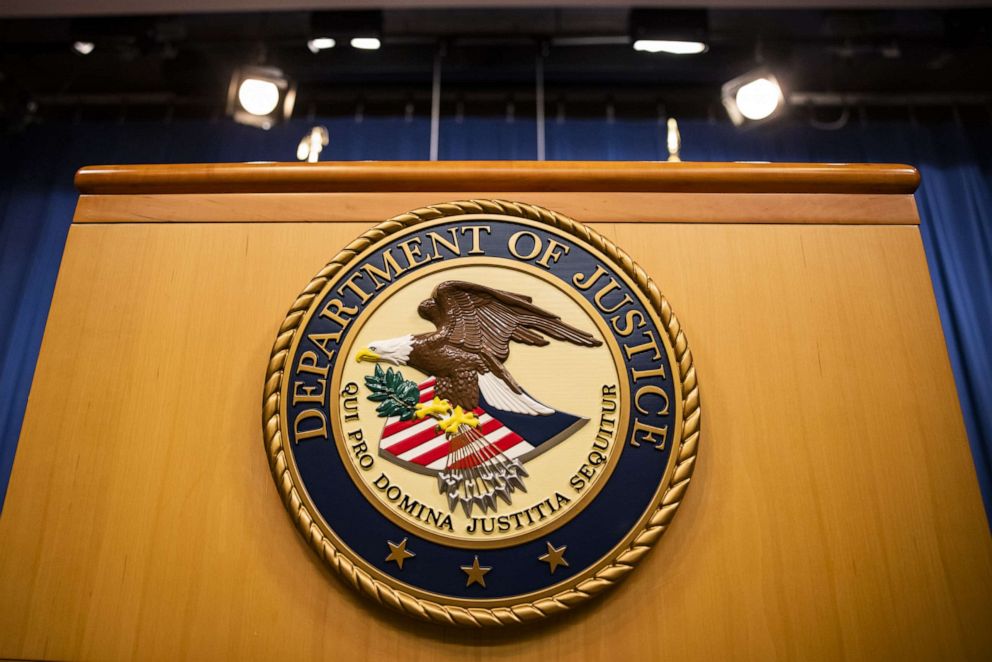House races on hold as redistricting heads to courts: The Note
Every challenge has to be brought individually.
The TAKE with Rick Klein
With barely three weeks left of 2021, 2022 campaigning is well underway. It's just that the court fights that figure to define it have only just begun.
Monday was supposed to mark the start of candidate filing in North Carolina for next year's elections. That was put on hold, with the North Carolina Court of Appeals delaying but then reversing itself to restore filing capabilities while the state's newly passed maps are challenged in court.
In Texas, candidates have only until next Monday to file for office for the March 1 primaries that set up next November's general election. But planning for who might run exactly where is in flux, with the Biden Justice Department announcing Monday that it's suing Texas over its redistricting effort.
Texas is gaining two new House seats with the 2022 cycle, while North Carolina is getting one. Republicans control the redistricting process in both states, and it shows: FiveThirtyEight's redistricting tracker shows them both losing competitive districts and gaining GOP strongholds under the new maps, notwithstanding population growth among minorities.
Other key states -- including Pennsylvania, which is losing a House seat, and where neither party controls the entire process -- haven't even finished drawing maps where candidates are set to start formally running in mere weeks.
In outlining the case against Texas, Attorney General Merrick Garland noted that a recent Supreme Court decision has complicated efforts to challenge new maps in states including Texas. The end of so-called "preclearance" requirements means every challenge has to be brought individually and only after states finish their processes.

The result is likely to be a slower and messier conclusion to a process that's never tidy.
The RUNDOWN with Averi Harper
Former Sen. David Perdue and incumbent Georgia Gov. Brian Kemp may belong to the same political party, but shots fired during Perdue's gubernatorial campaign launch are anything but friendly.
"Look, I like Brian. This isn't personal. It's simple. He has failed all of us and cannot win in November. Instead of protecting our elections, he caved to [Stacey] Abrams. It cost us two Senate seats, the Senate majority and gave Joe Biden free rein," Perdue said.
Perdue's primary challenge of Kemp epitomizes deep divisions within the GOP -- more specifically, the continued grip former President Donald Trump and 2020 election fallout has on the party. Trump has openly criticized Kemp and Georgia Secretary of State Brad Raffensperger for their refusal to overturn the state's presidential election results. Trump endorsed Perdue Monday evening, hours after his campaign launch. It's a dynamic we're likely to see play out across the country in addition to Georgia's high-profile race.

The already heated Republican primary offers an opportunity for Democrats in the state to take advantage of Republican infighting in their efforts to rally support. No Democratic challengers have emerged to take on voting rights activist Stacey Abrams, who is also running for governor in Georgia.
"No matter who emerges from Republicans' messy, race-to-the-right gubernatorial primary, voters know that Democrats are the only ones who will deliver on the issues Georgians care about," said Executive Director of the Georgia Democratic Party Scott Hogan.
The TIP with Alisa Wiersema
The Department of Justice's decision to sue Texas over its newly drawn redistricting map puts the state back into the national spotlight over voting rights just months after state Democratic lawmakers spent the summer blocking a GOP-backed bill that ultimately overhauled the state's voting laws.
The recently enacted law is widely criticized by voting rights advocates for making it harder for people of color to have ballot access. On Monday, the Justice Department's lawsuit took aim at the state's redistricting changes by alleging further disenfranchisement of those voters.

"Despite the significant increase in the number and proportion of eligible Latino and Black voters in Texas, the newly enacted redistricting plans will not allow minority voters an equal opportunity to elect representatives of their choice," Vanita Gupta, the associate attorney general, told reporters on Monday. Gupta added that the DOJ's investigation "determined that Texas's redistricting plans will dilute the increase minority voting strength that should have developed from these significant demographic shifts."
The move by the department also highlighted an ongoing theme that is likely to weigh heavily on 2022 midterm races -- the power voters of color hold in some of the nation's most-watched races. In Texas, the dynamic is likely to unfold along the border in heavily-Latino districts that are coming under increasing scrutiny for their potential to set the trajectory by which the next decade of the state's politics could play out.
THE PLAYLIST
ABC News' "Start Here" podcast. On Tuesday morning we begin with Russian aggression at Ukraine's border -- ABC's Foreign Correspondent Ian Pannell is in Eastern Ukraine reporting on the latest developments. Then, Peter McGinn -- one of the first known omicron cases in the US -- tells us about his experience. And, ABC's Chief White House Correspondent Cecilia Vega explains what a US diplomatic Olympic boycott could look like. http://apple.co/2HPocUL
WHAT YOU NEED TO KNOW TODAY
Download the ABC News app and select "The Note" as an item of interest to receive the day's sharpest political analysis.
The Note is a daily ABC News feature that highlights the day's top stories in politics. Please check back tomorrow for the latest.




